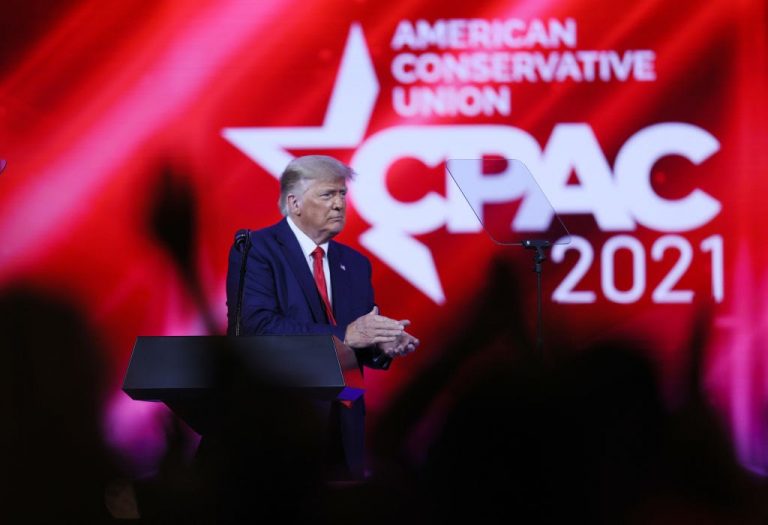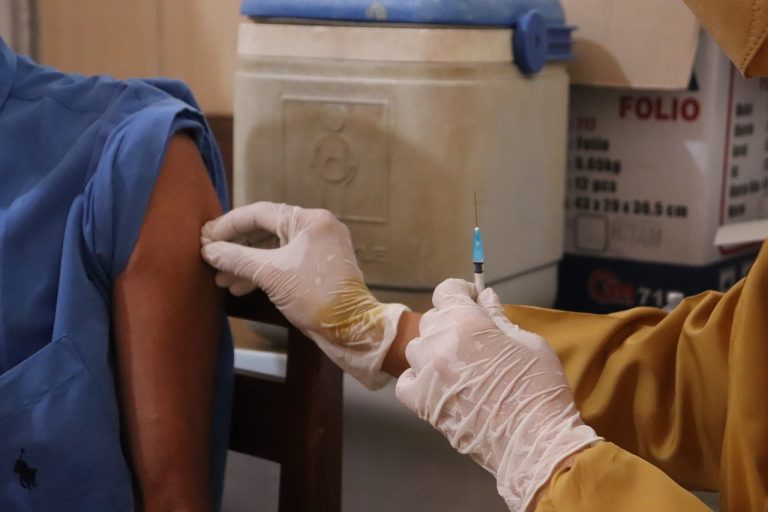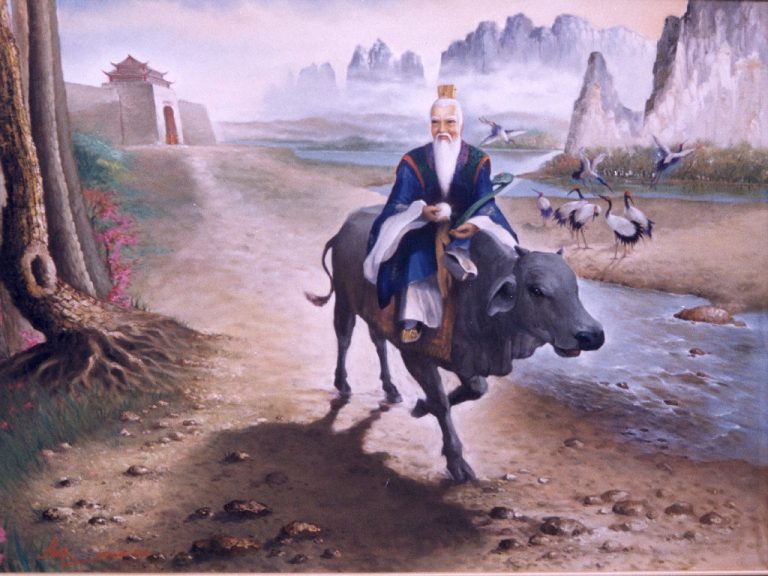The annual Conservative Political Action Conference (CPAC) in Orlando, Florida concluded on Feb. 28 with a 90-minute speech by Donald Trump in which the former president spoke about the future of the Republican Party and implied he has ambitions to remain a leading political figure.
In his first public speech since leaving office, Trump dismissed rumors that he would start a new political party. Instead, he spoke at length about various issues that the GOP should tackle, such as reopening schools, regulating Big Tech companies, and securing election integrity.
“The incredible journey we began together…we began it together four years ago and it is far from being over,” Trump said, just over two weeks after the U.S. Senate acquitted him in his second impeachment trial.
Trump also criticized the Democratic Party as pushing socialism, an ideology he said would eventually lead to authoritarian communism.
“We’re in the middle of a historic struggle for America’s future, America’s culture, and America’s institutions, borders and most cherished principles. Our security, our prosperity, and our very identity as Americans is at stake like perhaps at no other time,” he said.
Success
You are now signed up for our newsletter
Success
Check your email to complete sign up
House Democrats accused Trump of having incited the Jan. 6 breach of the U.S. Capitol, in which several people lost their lives; meanwhile, ongoing litigation seeks to present evidence of significant fraud in the 2020 presidential election that went to Trump’s rival, Joe Biden.
Trump hinted at a possible 2024 run for president, saying there was no reason why he wouldn’t be able to win a “third time.”
Force of populism
Elected in 2016, Trump’s populist rhetoric, encapsulated by slogans such as “Make America Great Again” and “America First,” sent shockwaves across the political spectrum, drawing both praise and criticism. Millions of Trump’s supporters viewed him as a fresh alternative to establishment politicians, and saw in him hope for a blow against the cronyism and vested interests of the “Washington swamp.”
There remains enthusiastic support for Trump among Republicans, with a straw poll conducted at the CPAC showing that 55 percent of respondents would nominate him as the party’s candidate in 2024.
In his speech, Trump lambasted Biden’s first weeks in office, saying he “has had the most disastrous first month of any president in modern history.”
“Already the Biden Administration has proven that they are anti-jobs, anti-family, anti-borders, anti-energy, anti-women and anti-science. In just one short month we have gone from ‘America First’ to America last,” Trump said.
Biden rapidly undid many of Trump’s actions as president, particularly those associated with core conservative concerns such as illegal immigration, the KeyStone XL pipeline, and the participation of transgender atheletes in women’s sports.
The former president said in the CPAC speech that the Democrat Party in its current form was promoting socialism and driving the country to communism, saying that “none of us even imagined just how bad they would be and how far left they would go.”

“We will save and strengthen America and we will fight the onslaught of radicalism, socialism, and indeed it all leads to Communism once and for all. That’s what it leads to,” he said. “The mission of the Democrat Party is to promote socialism. They want to promote socialism, ultimately leading, unfortunately, to Communism. And that will happen.”
The Trump administration’s condemnation of communism isn’t new. Beginning in 2017, the 100th anniversary of the Russian Bolshevik revolution, the White House began publishing statements dedicated to the ideology’s victims. Trump’s policy towards Communist China stressed holding the regime accountable for its trade abuses and human rights violations, a major shift from the pro-Beijing “engagement” paradigm.
A ‘destructive agenda’
Trump also echoed widespread fears among the conservative base about left-wing “cancel culture” and the growing influence of tech giants, which have increasingly come under fire for what many believe is unfair censorship.
Following the Jan. 6 protests in Washington D.C., which saw around 500,000 people show up to support Trump, social media platform Twitter deleted two of the president’s posts urging protesters to remain peaceful and go home. Trump’s account was closed by the company days later.
YouTube, which is owned by Google, had announced in late December that it would take down any video claiming widespread fraud in the 2020 election.
Mainstream media outlets have pushed a narrative that the violence committed on Jan. 6 was not the work of a small group of radicals, but the direct result of an inherently dangerous terror movement with Trump at its head.
Conservative commentators and figures have tried to push back, saying that framing tens of millions of the former presidents’ supporters as party to insurrection would only deepen divides in the country and exacerbate political extremism.
“If you look at Venezuela, you look at some of these countries, that’s why some of our biggest supporters are from South America and Latin America because they’ve seen what goes on with all of this cancel culture,” Trump said.
Trump lamented that the 1776 Commission, an educational project launched by the administration to promote patriotism and awareness of the United States’ founding principles, was scrapped by Biden on the latter’s first day in office.
“The task for our movement and our Party is to stand up to this destructive agenda with confidence and with resolve. The future of the Republican Party is as a party that defends the social, economic, and cultural interests and values of working American families of every race, color, and creed,” Trump said.
With additional reporting by Leo Timm













